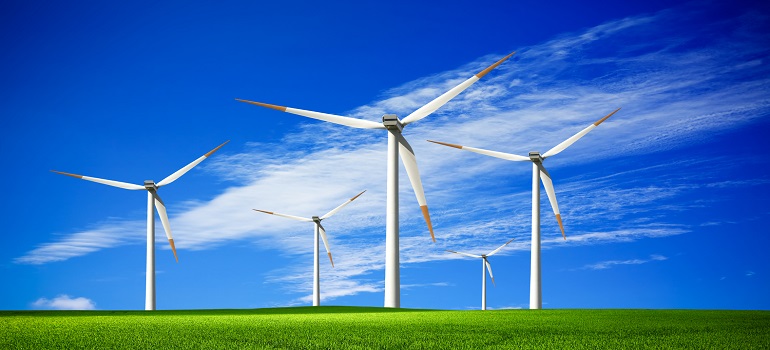
The reverse auction for determining wind power tariff should be scrapped in favour of closed/sealed bids if the Indian wind turbine manufacturers are to survive in the long run, said a top industry official.
He also said there should be clear policy for repowering – replacing of low powered turbines with high powered ones at the existing sites so that the increase capital cost gets reflected in the tariff.
“The Indian wind energy sector is truly an example for Make-in-India with major global wind turbine makers having a production base here.
“Around Rs 40,000 crore has been invested by the industry. It is now facing serious headwinds which if not addressed the industry may turn sick,” Ramesh Kymal, Chairman and Managing Director, Siemens Gamesa India and also the Chairman-Confederation of Indian Industry National Committee (Wind and Biomass) told IANS.
The wind power tariff touched a new level of Rs 2.64 per unit in the reverse auction conducted early this month by the Solar Energy Corporation of India (SECI) for putting up 1,000 MW capacity.
In normal auction, a product is sold to the highest bidder. In a reverse auction the sellers compete for business quoting their prices openly. The rates will gradually go down as sellers reduce their rates to get business.
On the other hand, closed or sealed bids are where companies quote their rates without revealing to others and the contract is given to the lowest bidder.
The new rate discovered is far below the Rs 3.46 per unit discovered in the auction held in February by SECI.
Till the advent of reverse auction for competitive bidding, it was the feed-in-tariff or negotiated tariff regime that existed giving the generators a comfortable price.
According to Kymal, State Electricity Boards (SEB) are not signing new power purchase agreements (PPA) and they are for renegotiation of already signed PPAs with wind power generators thereby forcing the equipment industry to stagnate.
“Like all other infrastructure projects, the bidding should be a closed one and not reverse auction done online. Why should one think closed bids are not transparent,” he said.
Kymal did not agree with the view that a bidder in a reverse auction would quote based on the project economics and a cheaper tariff would ultimately benefit the consumers.
“It may be true in theory. But in practice, it would lead to cheaper import of inefficient machines. Many of the thermal power plants with Chinese equipments are facing problems. Further cartels cannot survive for long in closed bids,” Kymal said.
Industry officials told IANS that wind power generators were able to quote low this time around as the equipment manufacturers were laden with inventory and they decided to dispose them at around 20 per cent discount.
“The inventory carrying cost was high and hence the industry players may have decided to cut their prices. But that does not mean the equipment prices too have found a new low like the power tariff,” Kymal said.
“We have scaled down our nacelle production. We started exports of blades to our sister companies in other parts of the world.
“We did not reduce our workforce as they were deployed in solar energy projects. But this situation cannot continue for long,” Kymal said about Siemens Gamesa India.
He said the Rs 2,64 per unit rate is an one-off event and eventually the tariff would settle down at around Rs 3.70 per unit.
Industry experts told IANS that if the central government is in favour of reverse auction then it should at least nudge the BJP headed and its friendly state governments to auction out projects instead of sitting tight.
Kymal said India added 5,500 MW of wind power last year and this year the fresh capacity addition will be much lower as vendors need a lead time of around seven months.
According to him repowering should be allowed with proper policy initiatives factoring the higher capital costs of new machines.
Source: IANS

